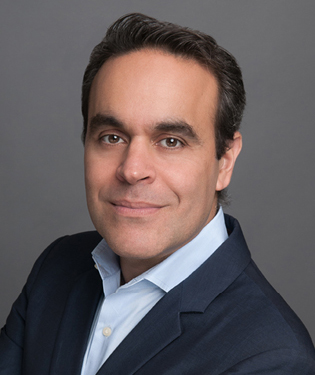Head of the Breakfast Club
To foster an environment of collaboration and trust, Paul Tessy sits down for breakfast once weekly with employees across the company, at every level.
Paul Tessy comes from a family of engineers, so it was no surprise when he chose that career path, too. As an industrial engineering student at the University of Toronto, he felt especially drawn to operations research and network operations.
“I did my fourth-year thesis with Canada’s largest grocery chain, Loblaws,” Tessy says. His work made a big impression on the company. “They offered me a job and asked me to implement the thesis. That led to my role on the logistics side of industrial engineering.”
In 2019, Tessy was appointed senior vice president of Purolator International, a U.S.-based subsidiary of Canadian transportation firm Purolator, Inc.
IL: Can you recall one early experience that helped shape you as a leader?
At the age of 26, after working with Loblaws for roughly five years, I left Canada and moved to the Netherlands to join TNT Express, my first job in global logistics.
I was responsible for engineering and projects in every region of the world. We rolled out productivity standards, industrial engineering standards, tracking and tracing systems, and network optimization. We decided how many facilities to have globally, what activities should go on in those facilities, and whether the system should be a point-to-point or hub-and-spoke model.
After three years, when I moved to opening up Russia and Turkey for the company, I made the transition from operations and engineering to business development and general management.
IL: What does your job at Purolator entail?
We are Canada’s largest express courier, freight, and logistics solutions company. As head of Purolator International, I’m responsible for all shipments moving into or out of Canada. The Canada-to-U.S. trade lane is also within my scope.
IL: How has COVID-19 affected your operations?
Our No. 1 priority is to keep employees healthy and safe. That includes making sure we have enough personal protective equipment (PPE) for our essential employees, who have continued to deliver with pride and purpose throughout the pandemic. They also played a key role in delivering COVID-19 test kits and PPE to clinics, hospitals, and patients in Canada.
Another big change is that as retail stores shut down, we saw a lot of growth in our customers’ business-to-customer (B2C) segment, with a substantial move to an omnichannel model. Customers were making sure that all their facilities were able to ship into Canada or within Canada, and that they could ship from store to store and let customers pick up from different retail locations, as well as curbside.
We’ve had to be flexible, modifying pickup frequencies, equipment, and processes to provide the services clients need.
IL: How would you describe your leadership style?
I try to create a trustful, respectful environment, always giving employees direct feedback in the spirit of improvement. I’m results oriented. And I believe that collaboration and continuous improvement are important for unlocking potential. I always strive for a one-team, one-company approach.
One mechanism I use to achieve those goals is The Breakfast Club. Each Wednesday morning, I meet with six to eight employees from throughout the organization to talk about issues that affect our employee base and things we want to improve as a company. I’m there as the leader of the international business, but the group could include a sorter from our facilities, a pricing analyst, and a back-office operations employee.
We also discuss broader topics, such as how to create an environment of diversity and inclusion. I bring ideas that emerge from these meetings to the leadership team, which debates them and makes decisions. That access to senior management, for employees at every level, creates an environment of collaboration and trust, and improves employee engagement. Their voices matter.
IL: What technologies will change the way you do business in the near future?
E-commerce will continue to grow by double digits during the next 10 years. Consumers want fast, free, convenient delivery. To meet those needs, we must operate efficiently and give consumers more of a choice in how they pick up their packages. We’re applying a lot of what we’ve learned in the B2C world to the business-to-business segment, where customers also demand higher service levels and greater visibility.
We’re also focused on the technology that enables our mission-critical, next-flight-out recovery products for healthcare, transportation, and industrial customers. These services deliver medical products needed for surgery, and repair parts for factories and other facilities. It takes strong and robust package tracking systems to maintain the high-quality services that our next-flight-out customers require.
IL: If you could switch jobs with someone for one day, who would it be?
A fifth-grade teacher. My son just finished fifth grade, so I’m well aware of the contributions teachers make to our family and society. There’s nothing more important than the ability to impart knowledge and see a child grow. I wish I could have that experience. Teaching is the most under-appreciated role in our society.
IL: How do you like to spend time outside of work?
My wife, who is from Colombia, danced ballet for many years, and we have gotten into dancing—salsa and merengue. We also take online dance courses. I play tennis, go road biking, and spend a lot of time sharing books with my kids.n

